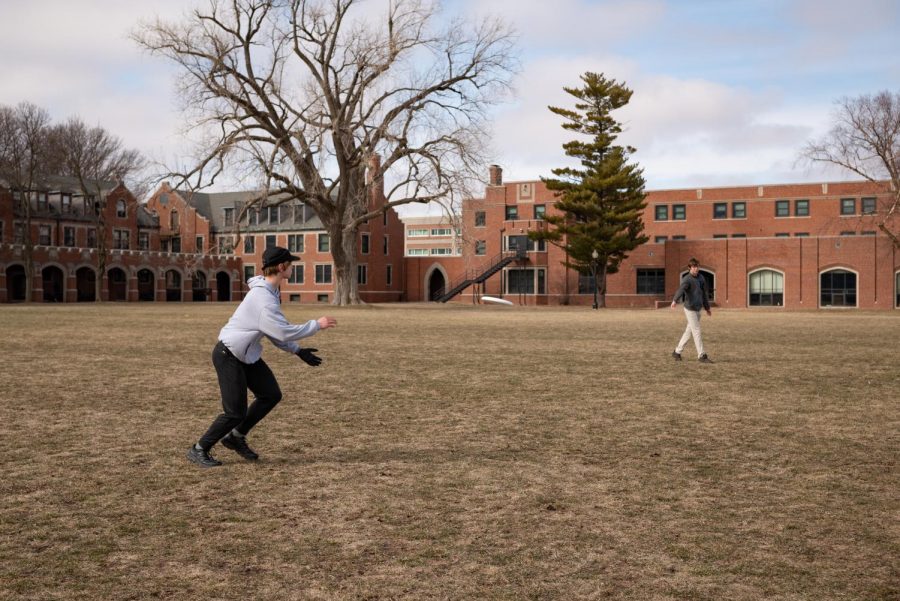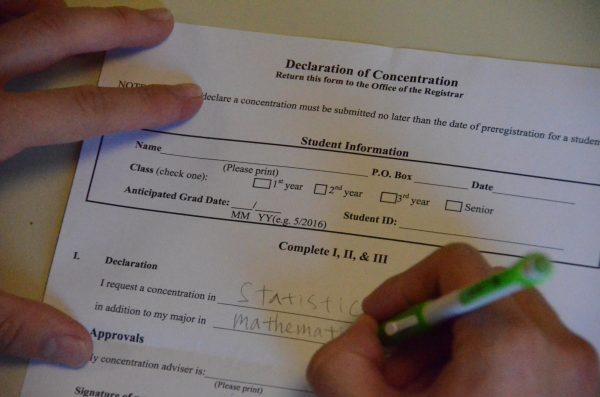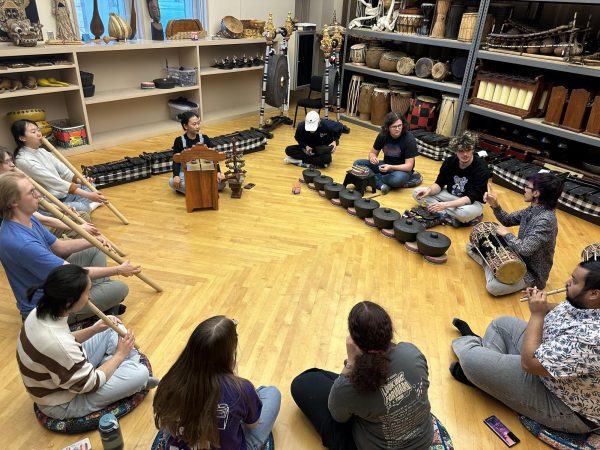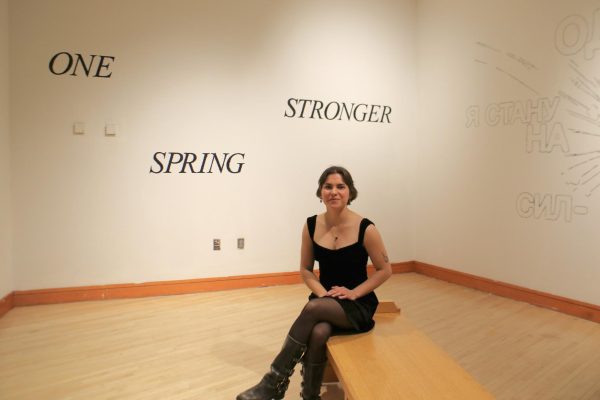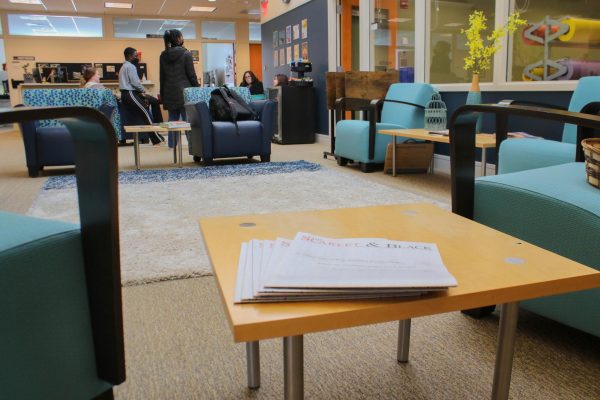Working Differently receives mixed feedback
Ben Shulman `26 (left) and Solomon Golden `24 (right) play frisbee.
March 6, 2023
This spring, Working Differently Days have formally returned, and the initial feedback is mixed.
On March 2, Grinnell College students, faculty and staff had their first Working Differently Day of the semester. This was the first of two days in the spring semester where no classes, standing meetings or co-curricular activities were held. While meant to help reinstitute a healthy work-life balance, some students and professors have found the Working Differently Days to actually increase their workload and stress.
Working Differently Days were introduced by Elaine Marzluff, former interim dean of the college, in the spring 2022 semester. Due to mixed feedback from numerous college committees, the Grinnell College Office of the Dean decided not to implement formal Working Differently Days in fall 2022. Instead, Beronda Montgomery, dean of Grinnell College, encouraged faculty to “use the fall semester of 2022 to intentionally consider how to promote operationalization of these days that best supports the health of individuals,” according to a campus-wide email sent on Aug. 9.
Tim Arner, associate dean of curriculum and academic programs, said that although he was not directly involved in the creation of Working Differently Days, he has been fielding many questions from faculty, staff and students about the purpose and guidelines of these days.
“We heard from the campus community that there is significant burnout and difficulty keeping up with the pace of things,” he said. “So these days were meant to be responsive to the cry for help in managing work-life balance.”
Arner says that there is intended to be flexibility for faculty to negotiate specific utilizations of the days. “We want these days to be purposely disruptive, but not in a way that produces anxiety,” he said. “The last thing we want is for them to be so disruptive that people feel that they’re not useful.”
Sherif Abdelkarim, professor of English, said that he has appreciated having Working Differently Days to grade, host guest lectures and invite students to do field work, but he currently sees greater benefit in allowing faculty to determine when and how to implement these days.
“The idea of a faculty member having the choice to ‘work differently’ according to the dates that work best for their particular class is a great idea. Frankly, I don’t see any disadvantages to that model,” said Abdelkarim. However, when it comes to the current structure, Abdelkarim said that having set dates can get complicated.
These days are a pain in the neck to plan curricularly. We put so much time into planning the semester and making sure that students aren’t overwhelmed. And then to just eliminate two days of class is a big deal.
— Leslie Gregg-Jolly, professor of Biology
Other faculty members have voiced similar concerns. Leslie Gregg-Jolly, professor of biology, said that she is ambivalent about Working Differently Days. “These days are a pain in the neck to plan curricularly. We put so much time into planning the semester and making sure that students aren’t overwhelmed,” she said. “And then to just eliminate two days of class is a big deal.”
Gregg-Jolly said that the College should look at workload more broadly. “If we limit work, students may possibly be less stressed, but then they also may not become the superstar alumni we’ve been able to foster,” she said, pointing to the frequent cancellation of science labs on weeks with Working Differently Days. “So at what point is there a trade off if we diminish the academic program?”
Arner said that while the majority of the feedback has been positive, the primary concern is that these days simply relocate work rather than eliminate it. Considering the mixed reviews across campus, Arner, Abdelkarim and Gregg-Jolly all said that more extensive surveying should be done to find a system that proves effective for everyone.
Many students feel that the most meaningful reform would be to use the extra days to create a three-day weekend. “Using Mondays and Fridays as Working Differently Days would be much better,” said Guanzheng Sun `25. “Putting them with weekends would create opportunities for traveling to see friends and family, or simply catching up on sleep and work.”
Sira Nassoko `24 also said that the days could be placed more effectively. Since they are placed mid-week, Nassoko has found that they essentially become reading days. “It’s a nice break from classes, but I don’t find that my day is any less busy.” Furthermore, Nassoko said that professors often still assign work. “I’ve had due dates on some Working Differently Days, and I know some friends have also had work either assigned or due on these days,” Nassoko said.
“It’s hard to gauge in the moment how effective these Working Differently Days are,” said Arner. “Ideally, we will look back in May and determine whether they made a difference.”
The second Working Differently Day is scheduled for Wednesday, April 26. The Grinnell College Committee on Academic Standing is also planning two Working Differently Days each semester in the 2023-24 academic calendar.




























































